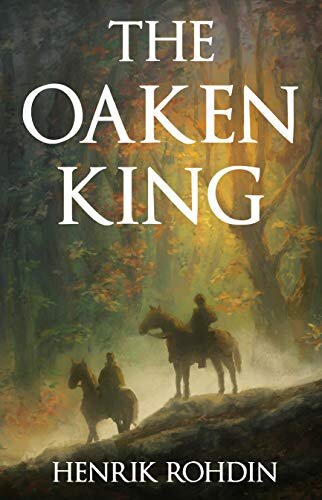I own Nef House Publishing, and I used to work at Hydra Publications as the production / acquisitions manager. I know a thing or two about the small press industry.
What do you need to know to land a contract with a small press? What can you avoid? What stands out?
As always, let’s dive right into it:
Make sure you know the difference between a small press and a vanity press. A vanity press publishes anyone who submits and then charges them a hefty fee, sometimes in the $10,000+ range. Vanity presses are scams. If a publisher of any kind ever tries to charge you money, RUN AWAY! Real small presses operate more or less just like traditional publishing, just on a much smaller scale (as the name implies). As a general rule: money always flows to the author.
Make sure you actually want to be published by the press you submit to. Don’t take a shotgun approach and query every publisher under the sun. Check out the publisher’s work to make sure it looks like stuff you would be happy producing. A lot of small presses cheap out on things like covers and editing, and you don’t want your manuscript treated the same way. Along those lines, make sure the genres match. Some publishers go for any and all genres, but most are specialized to things they know how to sell. Does your project fit? Will it look good next to the other titles on a table at Comicon?
Read the submission guidelines! Failing to follow the submission guidelines is not just an instant rejection—it also makes you look like a fool. Don’t submit a children’s book to a press looking for adult horror. Again, you just come off as foolish, and that’s not where you want to be. Keep in mind that many, many small press owners and authors know each other. The industry is fairly close, and people talk.
Do not have a backlog of subpar self-published novels in your query. I see this one all the time. Allow me to explain: if you have a link to an author website or other published works in your query, I am absolutely going to click it. I want to see what else you have. Are your other books selling? That’s a point in the good column. Are your other books stagnant? That’s not good… but the worst thing I can see when I click that link is a slew of amateur covers on equally amateur novels with no editing, no formatting, no reviews, no sales, and no hope. It tells me the author isn’t serious. They don’t care about their projects, so why would anyone else? And perhaps most damning of all, it would reflect poorly on the press to sign someone with an amateur backlog. Say you do get signed and a professional quality book is produced. People read it. They want more. They search the author name… and they find a disaster. Or, more likely, a whole catalog of disasters. They assume all those other books are also from the press, and it tarnishes the entire company.
What should you do if you have a rough backlog and want to query? Lying about it won’t get you the right answer, so fix it instead. If you’re serious, either professionally produce the projects and relaunch them or just bury them. Unpublish what you should not have published in the first place. Trust me—I’ve had to bury two novels and relaunched four. It isn’t fun, but it is necessary.
Edit your sample. The query letter and sample need to be as close to flawless as possible. A single typo can mean an instant rejection. Why? Small presses, even miniscule presses, get hundreds of submissions every single week. There are so many submissions that acquisitions managers like me can wait for a better novel in the same genre to come along. It isn’t worth taking a shot on a sample with typos when the next 10+ samples don’t have typos. Just nix the bad sample and move on.
Pro tip: even if you don’t want to hire a professional line editor for the whole manuscript before querying presses, at least hire an editor to go over the first 5k words. It won’t cost you much, and the benefits will be immense. Ask the editor what they think of the quality. Is it ready to submit? They have no skin in the game, so they’ll tell you. And it should go without saying, but self-edit the hell out of it. Showing your potential publisher that you’re serious about your craft and dedicated to producing quality goes a long, long way.
Stick to the book. Don’t give a full life story or curriculum vitae. You aren’t applying for a job. A few pertinent details about your writing career are fine, but nothing else is really important.
Keep the query short. Remember how many submissions come in? No manager wants to read 1.5k words of the query before even getting to the sample. There just isn’t enough time. Keep it short, to the point, and impactful. I’ve said it before and I’ll say it again: if you can get them interested with the first line, they’ll read the pitch. If they read the pitch, they’ll start the sample.
Examples: don’t start with “Hello, my name is xxx” or anything equally boring. Start with something cool like: “Welcome to the world of Uncity, a gripping post-apocalyptic sci-fi thriller following a sexy cyborg cop caught in a web of lies, deceit, and destruction in the seedy underbelly of Chicago, 2967 A.D.” Something like that will instantly grab someone’s attention. That’s the goal.
Set expectations low. Most presses deny something like 95 - 99% of all submissions without even asking for a full manuscript. Don’t lose faith after 10 rejections. Analyze whatever feedback you received, look at your query with fresh eyes, and reposition yourself to do better next time. If you get denied because your book doesn’t fit the genre, recalibrate your targeting. If you get denied for typos, hire an editor. You get the idea.
If you find a press you really like and want to hit a homerun, talk to an author or two in your genre from that press. Reach out to them. Read their work, ask them questions, and get a feel for the press. Ask what worked with their query. Get whatever advice you can from the authors who have made it out of the slush pile and onto the shelf.
Don’t take production steps. I see this one every now and then, but thankfully not super often. What does it mean? I’ll get into a sample I like and request the full manuscript, and it’ll be delivered with a cover, ISBN, formatting, etc. All of that is a nightmare for a small press. Right out of the gate, if it has an ISBN, I’m instantly out no matter what. I do not want to worry about how / if the book is registered anywhere or to anyone or anything like that. Formatting is just as much of a nightmare. If you’re accepted by a press, extensive edits are going to take place. Editing blows up the formatting. Not only is it a wasted expense (the press pays for formatting, of course), it can make your manuscript cumbersome. Remember, with so many submissions coming in at all hours from all reaches of the planet, it is much easier to nix a manuscript than worry about undoing formatting.
Don’t try to get into a press based on non-writing elements. It should go without saying, but trying to play up things that have nothing to do with your sample is a bad idea. No good acquisitions manager wants to read about your life as a struggling single mother of 19 (obviously, this doesn’t apply to non-fiction and self-help) when you’re submitting a sample of an esoteric horror set in Medieval Europe during the plague. The worst thing I’ve seen people do is try to create a sob story / reason to be accepted based on irrelevant factors like race, heritage, and sexuality. If you’re querying for a horror novel, your appearance and personal life simply do not matter. Especially not at the query stage. By way of example, I had someone query a sci-fi novel with a whole paragraph about how they deserved to be published because they survived a heart attack a few years ago. It didn’t even make sense.
Know your audience. If you’re querying a self-help book targeted to a Jewish demographic, being Jewish is obviously something you do want to mention. If you’re querying a badass epic fantasy saga in the style of Game of Thrones, being Jewish is irrelevant. Hopefully that makes sense.
The quality of your writing and ideas and marketability of your project should be the only relevant things to a decision.
Don’t query an unfinished project. If you’re sitting at 60k of a planned 90k word book, you aren’t ready yet. Don’t put the cart before the horse.
Don’t query a small press seeking “representation.” I see this one pretty often. Small presses are not agencies or agents. They are the publisher, not the agent, so you aren’t looking for representation at all. You’re looking for a press. Similarly, a lot of presses (my own included) do not accept represented manuscripts. The reason is the cost and trouble associated with it. A manuscript with an agent means the agent will demand a hefty advance, usually take a long time to respond to simple questions, and overall just get in the way.
Review and negotiate your contract. Are there terms you don’t like? Speak up! Once you sign that contract, things aren’t likely to change. Does your contract have an out? What happens if the relationship sours and you want or need to be out of it? Are the rates what you expect or want?
If contracts aren’t your thing, please hire an attorney to look it over. Signing a publishing deal is a big decision—don’t make it lightly. At the very least, get a trusted author in your genre to look at the contract if you don’t want to spend some cash on an attorney.
Ask questions! Even if you get denied outright, ask a friendly question or two about specific feedback. You might not get an answer, but you might. And that answer might be incredibly useful.
Don’t query the same book to the same publisher. No matter how much time has gone by, many publishers keep master lists of rejections.
You can, however, query a new project to the same publisher. Should you remind the publisher that you’ve been previously rejected? Maybe. It depends how far you got. If you were denied outright, I wouldn’t mention it. If you made it to full manuscript stage, I would. In the end, use your judgment.
That wraps it up. Have any advice of your own? Comment below!












